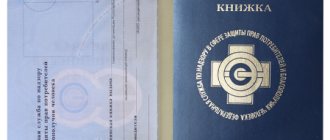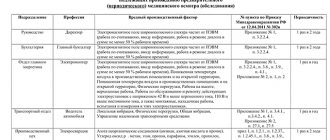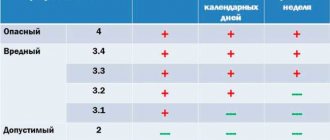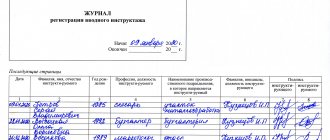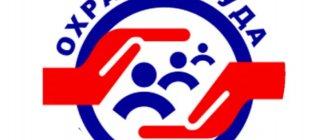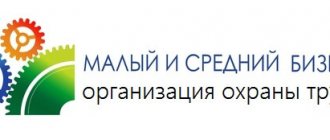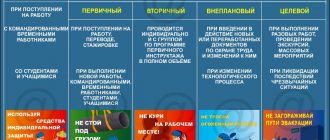The health of workers engaged in hazardous and hazardous production work requires constant monitoring. In order to carefully and accurately monitor its changes, it is necessary to conduct pre-shift and post-shift medical examinations. The frequency and conscientiousness of their implementation is especially important for drivers and other workers whose work brings great physical and emotional stress. A pre-shift medical examination is carried out to analyze the condition of an employee who has started work, and a post-shift medical examination, respectively, after its completion.
To ensure that their implementation does not raise questions, you must trust only professionals. The team of the Delomedika medical center (Diamed LLC) consists of highly qualified and experienced specialists. Therefore, contacting us is the best thing a manager can do for his subordinates. Our medical center will provide constant high-quality and professional screening and monitoring of employee health.
Regulatory framework for pre-shift inspections
Pre-shift and post-shift medical examinations are regulated by the Labor Code of the Russian Federation, in particular Law No. 323, Art. 213 part 3; Article 46, paragraph 5, part 2, which obliges a certain category of workers to check their health status before a shift (flight) and after. This applies to persons whose work involves:
The purpose of pre-shift, pre-trip, post-shift, post-trip medical examination:
If remote medical control solves the problems, then switching to remote care using a telemetry system is possible.
Regulatory framework for pre-shift inspections
Pre-shift and post-shift medical examinations are regulated by the Labor Code of the Russian Federation, in particular, Law No. 323, Art. 213 part 3; and art. 46, paragraph 5, part 2., which obliges a certain category of workers to check their health status before a shift (flight) and after. This applies to persons whose work involves:
- with hazardous production;
- with a high level of harm;
- with control of a source of increased danger, where loss of control can lead to the death of others.
Please note: Requirements for pre/post-shift (pre/post-trip) medical. examination is stipulated by law No. 323 art. 46 (21.11.11) on labor protection. Order of the Ministry of Health No. 835n (05/01/15) on the Procedure and mandatory conduct of the listed medical examinations is based on the Labor Code. Remote examinations are possible thanks to the law on telemedicine that has come into force (No. 242-FZ of 01/01/18)
The procedure and form of pre/post-shift inspections for certain categories of production, as well as (pre/post-trip) inspections are regulated by the Government of the Russian Federation and federal executive authorities (Law No. 317-FZ Part 4 of November 25, 2013). At the same time, if necessary, the decision (additions) to undergo daily medical examinations is determined by self-government bodies and intradepartmental regulations. The time spent on undergoing the inspection is included in working hours, and is paid by the employer at the average rate. When there are many workers requiring supervision by medical staff, then during shift changes the influx of people and the workload on one physician increase significantly. Waiting in line is a waste of money and working time.
Therefore, the use of telemetry systems, where inspection time is reduced to 3 minutes, is a convenient solution for both managers and staff. In addition, the quality of the inspection increases, since there is no human factor and it is impossible to come to an agreement with the device. The decision to perform a remote procedure using telemetry medical equipment depends on the purpose of the medical examination.
Purpose of pre-shift (pre-trip) post-shift (post-trip) medical examination
First of all, the innovations were taken up by transport organizations, which were waiting for the opportunity to simplify and reduce the cost of the mandatory pre-trip medical examination procedure. The technical equipment (telemetry equipment) of the remote diagnostics process is designed for examining drivers. Because it makes it possible to obtain a doctor’s stamp for permission to drive vehicles, which is required for issuing a waybill. The purpose of the pre/post-shift medical examination may be different: 1. The examination is necessary to identify persons who are under the influence of alcohol or drugs. It is necessary to increase the self-discipline of workers and ensure safety not only for the person being tested, but also for those around him. 2. Post-shift diagnostics are carried out in order to identify signs of poisoning, the onset of an occupational disease, when production is associated with harmful working conditions. This will help to quickly detect adverse symptoms and provide timely medical assistance. 3. Daily measurement data (AD, pulse, temperature, complaints) help to identify the dynamics of the impact of a harmful environment on the employee’s body. As a result, the doctor, monitoring the indicators, makes recommendations to prevent the chronic form of the disease. If remote medical monitoring solves the problems, then switching to remote care using a telemetry system is possible. The conditions, goals, methods and form of a medical examination are prescribed in an agreement concluded with a medical organization that has the appropriate license and staff with specialist accreditation.
Once again about the pre-trip (pre-shift) medical examination of drivers
Dear colleagues.
I continue to answer your questions. Today I will explain in detail the legal basis, the nuances of organizing and conducting pre-trip (pre-shift) and post-trip (post-shift) medical examinations of vehicle drivers. First, let me remind you why vehicle owners are required to conduct this type of medical examination, and what the law prescribes in this regard.
Article 20 of the Federal Law of the Russian Federation “On Road Safety” dated December 10, 1995 No. 196-FZ states that individual entrepreneurs operating vehicles are obliged to:
- organize, in accordance with the requirements of this Federal Law, the Federal Law of November 21, 2011 No. 323-FZ “On the fundamentals of protecting the health of citizens in the Russian Federation”, carrying out mandatory medical examinations and measures to improve vehicle drivers’ skills in providing first aid to victims of road accidents incidents.
Article 23 of the Federal Law “On Road Traffic Safety” states that medical support for road safety includes, among other things:
- mandatory preliminary, periodic (at least once every two years), pre-trip and post-trip medical examinations .
I quote the paragraphs of Article 46 of the Federal Law of the Russian Federation No. 323-FZ “On the fundamentals of protecting the health of citizens in the Russian Federation,” which describes in detail the purpose for which pre-trip and post-trip medical examinations of drivers are carried out:
- pre-shift, pre-trip medical examinations carried out before the start of the working day (shift, flight) in order to identify signs of exposure to harmful and (or) dangerous production factors, conditions and diseases that interfere with the performance of work duties, including alcohol, narcotic or other toxic intoxication and residual effects of such intoxication;
- post-shift, post-trip medical examinations carried out at the end of the working day (shift, flight) in order to identify signs of the impact of harmful and (or) hazardous production factors of the working environment and the labor process on the health of workers, acute occupational disease or poisoning, signs of alcohol, drug or other toxic intoxication.
For whom are pre-trip and post-trip medical examinations carried out? In accordance with Article 23 of the Road Safety Law:
- Mandatory pre-trip medical examinations are carried out during the entire time a person works as a driver of a vehicle, with the exception of drivers driving vehicles traveling on calls from emergency services.
- Mandatory post-trip medical examinations are carried out during the entire time a person works as a driver of a vehicle, if such work involves the transportation of passengers or dangerous goods.
So, we determine the most important things for mandatory pre-trip and post-trip medical examinations:
- since, according to the Law “On Road Traffic Safety”, a driver is a person driving a vehicle, pre-trip medical examinations must be completed for all persons driving vehicles owned by a legal entity or individual entrepreneur, regardless of the person’s position or status;
- pre-trip medical examination is carried out before the start of the working day (shift, flight);
- post-trip medical examinations are carried out for drivers transporting passengers or dangerous goods .
See also: Scheduled traffic police inspections of organizations operating vehicles have been canceled
Who should conduct pre-trip medical examinations and where? According to paragraph 8 of Order of the Ministry of Health of the Russian Federation dated December 15, 2014 No. 835n “On approval of the Procedure for conducting pre-shift, pre-trip and post-shift, post-trip medical examinations”, pre-trip and post-trip medical examinations are carried out:
- medical workers with higher and (or) secondary vocational education, a medical organization or other organization carrying out medical activities (including a medical worker on the employer’s staff), if they have a license to carry out medical activities that involve performing work (services) on medical examinations (pre-trip, post-trip), medical examinations (pre-shift, post-shift).
Based on this, pre-trip and post-trip medical examinations can be carried out by:
- Medical workers of a medical organization;
- Medical workers on the employer's staff.
In all cases, medical workers must have higher or secondary vocational education, and in all cases the organization must have a license to carry out medical activities to conduct pre-trip and post-trip medical examinations.
As a rule, medical organizations already have licenses to conduct medical examinations of drivers, and in order to organize medical examinations it is enough to conclude an agreement with a medical organization for the provision of this type of medical services. In this case, the disadvantage is that medical examinations must be carried out on the territory of the medical institution, which may be located at a considerable distance, and in this case it is necessary to think about the transportation of workers to the medical institution and back. The second option for organizing medical examinations involves conducting them on the employer’s premises. The difficulty here is that initially it is necessary to organize a medical office, hire an employee and obtain a license to carry out medical activities to conduct pre-trip medical examinations. The employer determines which method of organizing medical examinations he chooses based on his capabilities. The main thing you need to know is that pre-trip and post-trip medical examinations can only be carried out in an equipped office, by a qualified specialist, at the place where the license was obtained.
The procedure for undergoing pre-trip and post-trip medical examinations is described in detail in the Methodological Recommendations approved by the Ministry of Health of the Russian Federation and the Ministry of Transport of the Russian Federation dated January 29, 2002, including how a medical office is organized:
- To conduct pre-trip medical examinations and medical examinations, it is necessary to have a room consisting of at least two rooms: a room for examinations and a room for collecting biological media. The room must be equipped with the following medical devices, equipment and furniture (minimum):
- medical couch;
- desk, chairs, table lamp, wardrobe, coat hanger, floor mat, safe;
- device for determining blood pressure - 2 pcs., thermometer - 3 pcs., stethoscope - 2 pcs.;
- device for determining alcohol vapor in exhaled air - 2 pcs.;
- breathalyzer, rapid tests for alcohol and drugs. A constant supply of: breathalyzers - 2 pcs., express drug tests - 10 pcs.;
- table for medical equipment - 1 pc.;
- medical spatulas - 10 pcs.;
- bag with a set of medicines for emergency medical care - 1 pc.;
- equipped room for sampling biological media;
- the premises must be equipped with communications equipment.
See also: Internal investigation of a traffic accident
Documentary support for pre-trip and post-trip medical examinations implies the presence of a Register of Pre-Trip Medical Examinations and a Register of Post-Trip Medical Examinations. According to paragraphs 14 and 15 of the Order of the Ministry of Health of the Russian Federation dated December 15, 2014 No. 835n “On approval of the Procedure for conducting pre-shift, pre-trip and post-shift, post-trip medical examinations”, logs are kept on paper, the pages of which must be laced, numbered, sealed with the organization’s seal, and The logs contain the following information about the employee:
- date and time of the medical examination;
- surname, name, patronymic of the employee;
- employee gender;
- employee's date of birth;
- the results of the studies specified in paragraph 10 of the Procedure;
- conclusion on the results of medical examinations in accordance with paragraph 12 of the Procedure;
- signature of a medical worker with a transcript of the signature;
- employee signature.
Logs can also be filled out on electronic media, but taking into account the requirements of the legislation on personal data and with the mandatory ability to print out the log pages.
In this case, the information entered into the journals is certified by an electronic signature. In addition to the magazines, in accordance with paragraphs 16 and 17 of Order of the Ministry of Health No. 835n, a mark on the pre-trip and post-trip medical examination is placed on the waybill in the form of a stamp:
- ... the waybills are stamped with the stamp “passed a pre-trip medical examination and is allowed to perform work duties” and the signature of the medical worker who conducted the medical examination;
- …the waybills are stamped “passed a post-trip medical examination” and signed by the medical worker who conducted the medical examination.
We remind you that on the website, in the “Road Traffic Safety Documents” , you can find samples of documents necessary for organizing work on road safety.
You can also purchase a ready-made package of documents for organizing work on road safety on the website www.trans-otdel.ru. The cost of the package is 2500 rubles.
All documents are presented in Word and Excel format. In order to receive all the listed documents, just write to the email indicated in the “Contacts” , and you will be contacted within a day. Documents will be sent electronically to the email address you provided after confirmation of payment.
Head of the Transport Department Zuev Seraphim
The procedure and possibilities for remote pre-shift (post-shift) inspection
With the help of the telemetry complex, the basic requirements of the Procedure (No. 835n) for the daily inspection of workers are met. Before transferring personnel to remote service, a visual examination is required for: • detection of drug addiction (traces of injections), alcohol addiction - characteristic swelling, trembling of limbs, pallor during intoxication; • detection of chronic diseases, predisposition to cardiovascular spasms, blood pressure disorders (hypertension, hypotension, etc.). • assessment of mental behavior: talkativeness, lethargy, etc. This is a necessary procedure to identify an employee at risk, which requires special monitoring by a physician. It is possible to conduct inspections during the shift, and not just before or after it.
Who should undergo a medical examination
The Labor Code and the Order also contain a list of professions subject to periodic medical examinations. These are employees under the age of 21, as well as those who work:
- in harmful and dangerous production;
- at work at heights;
- in transport (drivers, machinists, etc.);
- in the field of catering;
- in educational and children's institutions;
- in pharmaceutical, medical and sanitary institutions (spas, saunas and laundries);
- in beauty salons that provide hairdressing and cosmetology services;
- in the cleaning service;
- in the field of water supply;
- at livestock enterprises and poultry farms.
The list is open, and the employer, in agreement with subordinates, can organize regular medical examinations for any other professionals.
The legislator also establishes the frequency of such medical examinations, which depends on the working conditions and is detailed in Appendix No. 1 to the Order. On average, the listed categories of workers should be examined at least once every 1-2 years.
Parameters available during remote pre-shift (post-shift) inspection
Telemetry complex is medical equipment designed for remote medical examination of an employee. Devices connected through the terminal are certified medical devices approved for use in the Russian Federation. Remote diagnostics allows you to obtain the following information and parameters for analysis: 1. Collect complaints, if any, about your health. The touchscreen displays a list for you to select the appropriate description. 2. Obtain tonometer readings (blood pressure), pulse. 3. Measure the temperature. 4. Conduct a test to quantify alcohol vapors in exhaled air using a breathalyzer. 5. Visual observation of the process via video recording with sound. Assessment of the actions and behavior of the employee being examined. 6. The inspection results are automatically entered into the pre-shift (post-shift) inspection logs. 7. The dynamics of indicators are monitored, which helps to identify unfavorable stable deviations from the norm, indicating the need for preventive treatment, medical examination or other type of medical care. If daily inspection is carried out for drivers working in shifts, then the functions of the telemetry complex can be expanded. For this purpose, we have developed a package of mobile applications. The mobile service will allow you not only to undergo a medical examination of employees, but also to issue a report on the technical condition of vehicles, which is given by the inspector. And also, automatically generate waybills and keep reporting logs. If the purpose of the examination is to monitor the condition of employees at different times of the day during shift work, when there is no full-time medical staff, or providing round-the-clock duty is expensive for the organization, then switching to remote service is a reasonable and profitable solution.
Organization of pre-shift medical examination
The responsibility for organizing the procedure under consideration by labor legislation rests with the employer. The exception is cases when it is carried out on the initiative of the employer himself, exercising his right, in relation to employees not included in the mandatory list.
The immediate procedure is regulated by Order No. 832n, which establishes, in particular, the following standards:
- the organizer of these inspections is the employer (or an individual entrepreneur in relation to himself, if there is such a need);
- bearing the costs for its implementation is the burden of the organization, not the employee;
- all examinations can be carried out exclusively by specialists with higher or secondary medical education, or by medical organizations (both of them must have a license to carry out the relevant type of activity);
- during the examination, complaints about the state of health are clarified, pulse, pressure and body temperature are measured, an external visual examination is carried out, and signs of intoxication of one kind or another are identified;
- The procedure is completed by issuing an appropriate conclusion on the person’s suitability to perform his or her job duties or by refusing permission to work.
The decision made is recorded in a special journal, which also contains information about the employee, the results of the studies performed, and the signatures of the medical specialist and the person examined.
Who is recommended to switch to remote inspection?
The requirement to undergo a daily medical examination when employees work in shifts is associated with some implementation difficulties. For example: 1. The staff is large, inspection takes a lot of time. 2. Paying for a doctor’s 24-hour stay on the organization’s premises is expensive for the company. 3. Equipping a medical office requires considerable financial investment, which is not provided for in the budget. 4. Visiting the doctor's office is inconvenient, and when working shifts, it is not always possible. 5. Personnel work remotely from populated areas; round-the-clock presence of a physician is excluded. 6. Pre- and post-shift inspections are not possible for other reasons. In these cases, remote pre-shift (pre-trip), post-shift (post-trip) medical examination of employees is recommended to be carried out using telemetric systems.
When is a medical examination performed?
When starting work, before entering the line, drivers must undergo a medical examination and put a check mark from the inspector on the technical inspection of the vehicle. Regardless of how long it takes to get to the medical facility and back, including the examination itself, it is counted as working hours. The employer does not have the right to assign this responsibility only to the driver, much less deduct this period from the working day.
Post-trip or post-shift medical control is carried out at the end of the shift or at the end of the trip, if it exceeds working hours. day. It is also necessary to observe working hours. The employee’s schedule takes into account periods of rest and driving. The rules for recording standard hours are regulated by Law No. 197-FZ. The doctor indicates the time of the PME in the approval stamp of the waybill.
Health worker stamp: Order No. 835n
- Based on the results of passing the pre-trip medical examination when making the conclusion specified in subclause 1 of clause 12 of this Procedure, the stamp “passed the pre-trip medical examination and was admitted to perform labor duties” and the signature of the medical worker who conducted the medical examination are placed on the waybills.
- Based on the results of passing the post-trip medical examination when making the conclusion specified in subparagraph 1 of clause 12 of this Procedure, the stamp “passed the post-trip medical examination” and the signature of the medical worker who conducted the medical examination are placed on the waybills.
Note: There is no mention of the date and time of the inspection. They are specified in other standards. Therefore, it is better to write down the date, month, year + time of the procedure: hour and minutes from and to. For example: Date: 12/12/21; Time: 8:00 - 8:08; Signature with transcript: Sokolova A.A. or UKETSP.
Imagine the situation: examinations are not carried out, health workers’ stamps are forged. In an organization where several drivers work, the waybills indicate one time for completing the PMO. If such a violation is discovered, the regulatory authorities will impose significant fines on managers and officials. Forgery of documents is subject to criminal liability. Therefore, the time of PMO, technical control, and departure from the parking lot should not coincide in one voucher or in several.
Note: When employees work on a rotating schedule, inspections are carried out at different times of the day. The management of the automobile enterprise is obliged to provide the opportunity to pass it during any period of the working day, including holidays and weekends.
The validity period of the travel document has changed
Before the changes were made, the minimum period for which a P/L was issued was one day. For long flights it did not exceed 30 days. The Labor Code of the Russian Federation, Article 329 (Regulation 15) of Law 197-FZ, describes the working hours of drivers, which must be combined with rest. Therefore, no matter how long the sheet is issued, the time spent behind the wheel is taken into account - 7/8 hours + rest up to 4 hours. In total - no more than 12 hours.
The schedule depends on the characteristics of transportation by different modes of transport. Therefore, the number of working hours per week and month is calculated. It is necessary that the total amount does not exceed the work and rest standards. Recently, there have been frequent complaints that inspectors pay special attention to the actual driving time. To avoid complaints, follow the schedule, mark the hours of breaks in the mail.
Interesting fact: Certain types of vehicles must be equipped with tachographs - this is a kind of control over the working hours of drivers. In some European countries, this attribute of a car is treated very strictly. For detected violations, fines are levied that would shock our drivers.
For example, if the device is used incorrectly - €400; intentional violation (no card data) – €2000; absence of a tachograph - €500,000 or prison (data taken from Wikipedia). With such fines, no one will want to violate traffic regulations.
The main advantages of using telemetry equipment
Agree on the possibility of remote service with the medical organization you choose. Ensure that inspection requirements are met to the satisfaction of quality. After which, using the opportunities
Telemetry equipment 1. Medical examination is available at any point, no matter how far you are from the medical facility. 2. The time required to examine one employee takes no more than three minutes. 3. Money is saved on inspection fees per employee. 4. There is no human factor. The device records the time, indicators, and reason for removal from work. What is the first thing a manager learns about? 5. Discipline improves: drinking alcoholic beverages and using drugs is fraught with dismissal, since the doctor will detect these deviations using a breathalyzer and visual observation via video recording. 6. Availability of the procedure at any time of the day or night. 7. Inspection results and reporting logs are kept automatically. Data is stored on different media, they can be printed on paper, preserving the archive for at least 5 years, as required by Russian legislation. 8. Dynamic data on deviations from the norm are automatically displayed, which indicates the possibility of a serious illness. This facilitates the rapid adoption of measures to prevent negative consequences for the employee’s health. 9. The use of telemedicine tools to conduct a remote medical examination complies with the norms and requirements for the procedure on the part of the inspecting authorities. Shift work of employees who are required to undergo inspection at different times of the day is a difficult task for many organizations and concerns not only drivers. The Telemedicine Law makes it possible to be served remotely, receive consultations and timely medical assistance provided by our company. According to Law No. 323, the services of a licensed medical institution for pre-trip, pre-shift and other examinations are classified as medical care. We are able to provide it to any organization, if this does not contradict the regulations and laws of the Russian Federation.
List of professions requiring pre-shift medical examination
• operators of technological workshops (polymerization, distillation, catalyst production, polypropylene granulation, adhesive preparation) • operator-hydrometallurgists for the separation of rare earth elements, compressor units • passenger train crew (train manager, conductors, train electrician) • foremen and team leaders of mining and tunneling crews • blasters • vulcanizers servicing vessels operating under pressure • drivers of vehicles working on routes of regular and irregular transportation of passengers and cargo, including dangerous goods • divers • decontamination specialists, dosimetrists • air, railway and subway traffic controllers • refinery masters production • drivers of a nitrogen-oxygen station • drivers and assistant drivers of a drilling rig • drivers and assistant drivers of tower, gantry, bridge, caterpillar, automobile, railway, port and floating cranes • drivers and assistant drivers of locomotives (electric locomotives, diesel locomotives, diesel and electric trains ); workers of locomotive crews: incl. metro electric trains • drivers, assistant drivers of track machines, drivers and assistant drivers of railcars, motor locomotives, motor railcars and other special self-propelled rolling stock • drivers of mining and tunneling machines • drivers, boiler room operators (boilers with a working pressure of more than 0.07 MPa - 0.7 kgf/ cm2) • lifting operators, assistant drivers of excavators, mast lifts, injection machines, operators of compressor units, oxygen cylinder fillers • chiefs of the lock watch, supervisory teams, senior controllers and controllers, specialist drivers of the penal system • operators of underground repairs of wells and the right to conduct drilling operations, production, maintaining reservoir pressure, preparing and pumping oil, senior foremen of the reactor installation, special water treatment • crew personnel during the period of preparation for the operation of a research nuclear reactor, operation and shutdown of the reactor (chief project engineer, shift supervisor, control engineer, engineer physicist, process engineer, instrumentation engineer, protection control system engineer, electrical engineer, mechanic on duty, electrician, dosimetrist repairman, trainees of all professions, other professions involved in the work) • personnel servicing existing electrical installations with a voltage of 220 Volts and above, performing operational switching in them and performing adjustment, installation work and high-voltage tests in these electrical installations • managers, specialists and workers directly performing work with nuclear hazardous fissile materials in nuclear hazardous areas • shift foremen of a nitrogen-oxygen station, special water treatment plant • stems and handles lifting people • gunners (departmental security guards) who are allowed to carry firearms and use them • aircraft crews (pilots, flight engineers, flight attendants) flight mechanics, flight radio operators, navigators, flight operators, flight attendants, amateur pilots) • airport workers performing work for servicing aircraft, airfields and air passengers (aviation security service, aviation engineering service, airfield service, passenger and cargo transportation service, aviation fuel and lubricants service, airport dispatch service) • crews of river and sea vessels (captains and their assistants, navigators, mechanics, sailors, mechanics, electricians, radio specialists) • workers performing all types of underground work on the metro during construction and during its operation (drivers of metro roadheaders, mining foreman, miner, tunneler, escalator maintenance workers, shaft and handlers of human lifts , track fitters, radio specialists) • wagon inspectors, wagon speed controllers, train compilers and assistants, foundry workers, miners
List of jobs that require post-shift medical examinations for workers
1. Those employed in underground work (Article 330.3 of the Labor Code of the Russian Federation). 2. Performing work at facilities for the destruction of chemical weapons (Article 14 of the Federal Law of May 2, 1997 No. 76-FZ “On the destruction of chemical weapons”, order of the FMBA of Russia dated July 20, 2010 No. 384 “On additional measures for medical support personnel at chemical weapons destruction facilities"). 3. Nuclear energy complex, nuclear shipbuilding, special chemicals and other facilities with particularly hazardous working conditions (Order of the Ministry of Health and Medical Industry of Russia dated August 16, 1994 No. 173 “On approval of the List of additional mandatory types of health care, preventive, therapeutic, diagnostic and rehabilitation activities in addition to the Basic program of compulsory medical insurance for healthcare institutions of the Federal Directorate of Medical-Biological and Extreme Problems under the Ministry of Health and Medical Industry of Russia"). 4. Companies included in the list of organizations of certain industries with particularly hazardous working conditions (Clause 2 of the Decree of the Government of the Russian Federation of December 26, 2014 No. 1540 “On the peculiarities of the organization and financial support of the provision of medical care, including the provision of additional types and volumes of medical care assistance provided for by the legislation of the Russian Federation, to the population of closed administrative-territorial entities, territories with physical, chemical and biological factors hazardous to human health, included in the corresponding list, to employees of organizations included in the list of organizations of certain industries with particularly hazardous working conditions"). 5.Employed in aviation (for medical reasons) (Order of the Ministry of Transport of Russia dated April 22, 2002 No. 50 “On approval of the Federal Aviation Rules “Medical examination of flight, dispatch personnel, flight attendants, cadets and candidates entering civil aviation educational institutions”) . If necessary, by decision of local authorities, individual employers may introduce additional conditions and indications for mandatory medical examinations (part five of Article 213 of the Labor Code of the Russian Federation).
Categories of workers who are required to undergo a medical examination at the beginning of the working day
The categories of workers required to undergo a pre-shift medical examination are currently established by the Labor Code, mentioned by the law in the field of road safety, as well as a number of by-laws. So, the following are subject to mandatory medical examination on the eve of performing a labor function:
Don't know your rights? Subscribe to the People's Adviser newsletter. Free, minute to read, once a week.
- specialists whose job responsibilities include underground work (Part 2 of Article 330.3 of the Labor Code of the Russian Federation);
- professional drivers whose duties include driving a vehicle (as well as other persons who, due to certain circumstances, drive a car owned by a legal entity) (Article 23 of Law No. 196-FZ);
- individual entrepreneurs who independently drive a car for the purpose of carrying out business activities (Article 23 of Law No. 196-FZ);
- drivers of various types of railway transport and their assistants (order of the Ministry of Transport of the Russian Federation “On approval of the list of professions...” dated March 28, 2007 No. 36);
- persons engaged in work of a hazardous nature, which includes some specialists in the nuclear and chemical industries (Procedure for conducting medical examinations..., approved by order of the Ministry of Health of the Russian Federation dated 04/09/1997 No. 105, and order of the Ministry of Health of the USSR "On improving the medical examination system..." dated 09/29/1989 No. 555).
The law also does not exclude the right of the employer to organize similar medical examinations at the beginning of the working day for other categories of employees for the purpose of safety and health preservation of team members.
